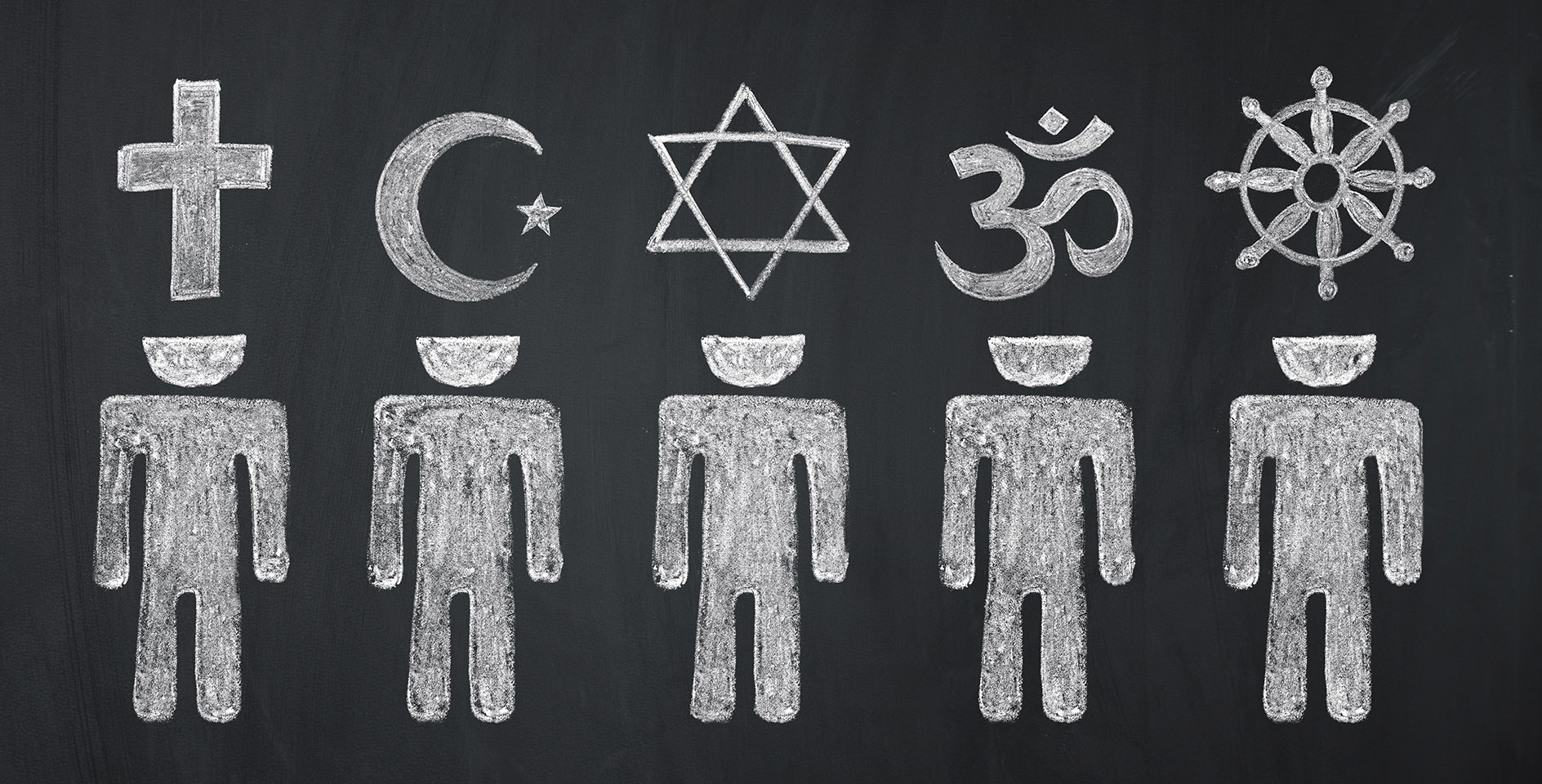Over the weekend, a tweet from CNN promoted a new series called “Believer” with Reza Aslan that begins airing on Sunday, March 5.
Now, the series has not yet begun, so there’s some degree to which I need to give the series the benefit of the doubt and hope for the best. But by the looks of it, based on the commercial enclosed within the tweet, CNN is engaging in gross distortion of a hotly debated word—“pluralism.”
Here’s the text from the commercial, featuring Aslan:
Faith is mysterious. It’s indescribable. And religion is just a language you use to describe your faith. Although we’re all speaking different languages, we’re all saying pretty much the same thing. Religion is about who you are, how you see yourself, your world; that’s what it means to say “I am Christian,” “I am Muslim,” “I am Jewish,” “I am Buddhist,” “I am Hindu.” These are far more statements of identity than they are statements of faith.
Without using the word, Aslan is using categories related to pluralism. I want to be respectful toward CNN and Reza Aslan, but the descriptions offered above defining “religion” and “faith” are nothing short of awful, and I’ll explain why.
First, it’s important to understand the context of the word “pluralism.” In many circles (not just Christian), pluralism is a bad word and often viewed with hostility, and for good reason. Some individuals mindlessly rattle off “pluralism” as a way to gloss over our religious differences in society. The “COEXIST” bumper stickers might come to mind. So the thinking goes: If we can all just agree not to take our differences too seriously, everyone will learn to live together in relative peace and harmony.
Seen in a similar light, pluralism is akin to religious relativism, and is used by liberals as a way to make religion merely an expression of sociological diversity. Because “God” is unknowable, according to the skeptical mind, all religions are merely grasping after partial truths of the divine. This viewpoint is philosophically problematic because it assumes a vantage point from the one offering this perspective, namely, that he or she—the skeptic—can claim that God is unknowable. This is a truth claim that some world religions would object to (ex. Christianity), because some religions believe that God has revealed himself in such a way as to know him and commune with him.
These assumptions are the problematic assumptions born out in the commercial. Reducing religion to another form of identity politics, Aslan makes the astounding—and frankly, tendentious—claim that religious viewpoints are “far more statements of identity than they are statements of faith.”
Any serious religious believer who understands the exclusivity of their faith knows that Aslan is blowing smoke in their faces and glossing over serious, often mutually-exclusive truth claims in order to pacify fears of religious extremism. But Aslan, however, is also engaging in an absolute claim as well. Saying that all religious claims are saying essentially the same thing is just as tendentious as the accusations are that one religion is right over others. For example, as a Christian, I believe Jesus Christ is the only way to truly know God and have a relationship with him (John 14:6). This means, according to biblical Christianity, that Muslims, Jews, Hindus and Buddhists do not know God. That is a very bold claim, but honesty requires one to acknowledge what his or her faith actually teaches. From real honesty can come authentic dialogue. We need to be honest about the implications of our truth claims and should expect other religions to do so as well if any real hope for pluralism is to be achieved. If I am not honest with my Muslim neighbor about the tenets of Christianity, I am betraying my own Christian faith and in the process, denying the substance of what I believe will save my Muslim neighbor. Anything less than the full truth prevents the possibility of real pluralism from being realized.
Aslan’s claim that religion is about “identity” more than “statements of faith” is simply wrong because it approaches religion from the wrong vantage point. Religion is about much more than identity, but never less. But taking this logic further, we must see that it is religious devotion itself that builds one’s identity; not the other way around. I am a Christian, but I am not a Christian on secularized grounds that countenances progressive faith claims first. I make no apologies in confessing that Jesus Christ is the only way to be saved (Acts 4:12; 1 Tim. 2:5). That truth is about much more than my identity; that truth is about how the universe is ultimately accountable to divine judgment (Acts 17:30-31).
But above all, and central to the argument I’m making in this article, in making this claim, Aslan is actually undermining the positive aspects and prospects of what pluralism means, strives after and entails.
Real pluralism means being honest about our religious beliefs and religious differences.
Real pluralism strives for social tranquility by agreeing to to live peaceably, kindly and respectfully despite deep, irreconcilable beliefs about who God is, how he calls us to live and how we attain a relationship with him.
We do no service to our neighbors in weakening the claims of our religion in order to serve a greater social good. The social good is better served when honest brokers approach one another within a society that pledges to foster religious liberty by giving each equal space in the public square—not in spite of deep difference, but because of it.
This means true pluralism entails religious liberty. Only an environment committed to treating religions with respect and equal freedom can hope to attain a social environment where disagreement is resolved without recourse to violence and social unrest.
Reza Aslan means well, and I hope the show is better than what is advertised, but let’s live in a society honest about our religious differences and which refuses to drain religion of its doctrinal center in the name of feel-good liberalism.










